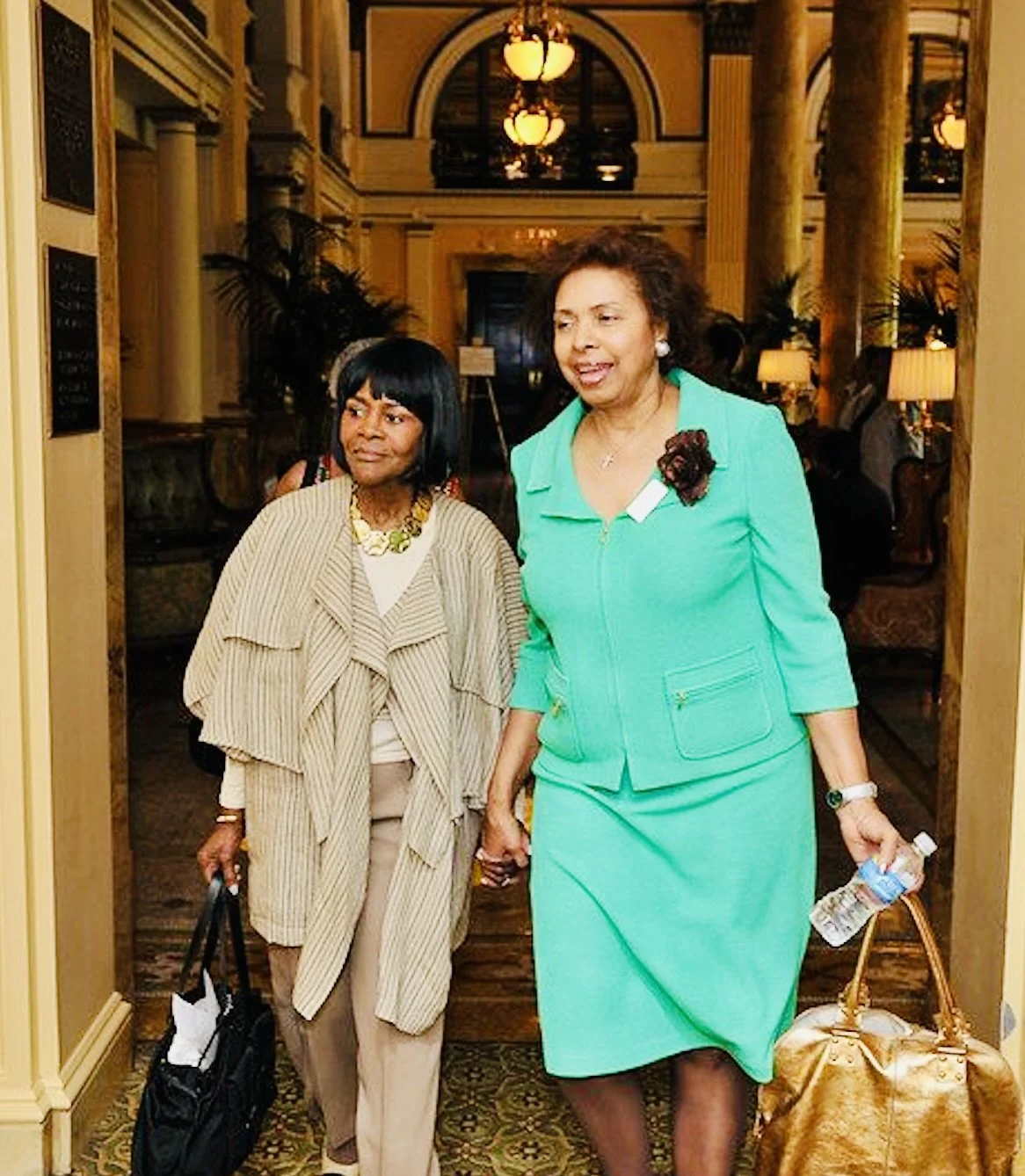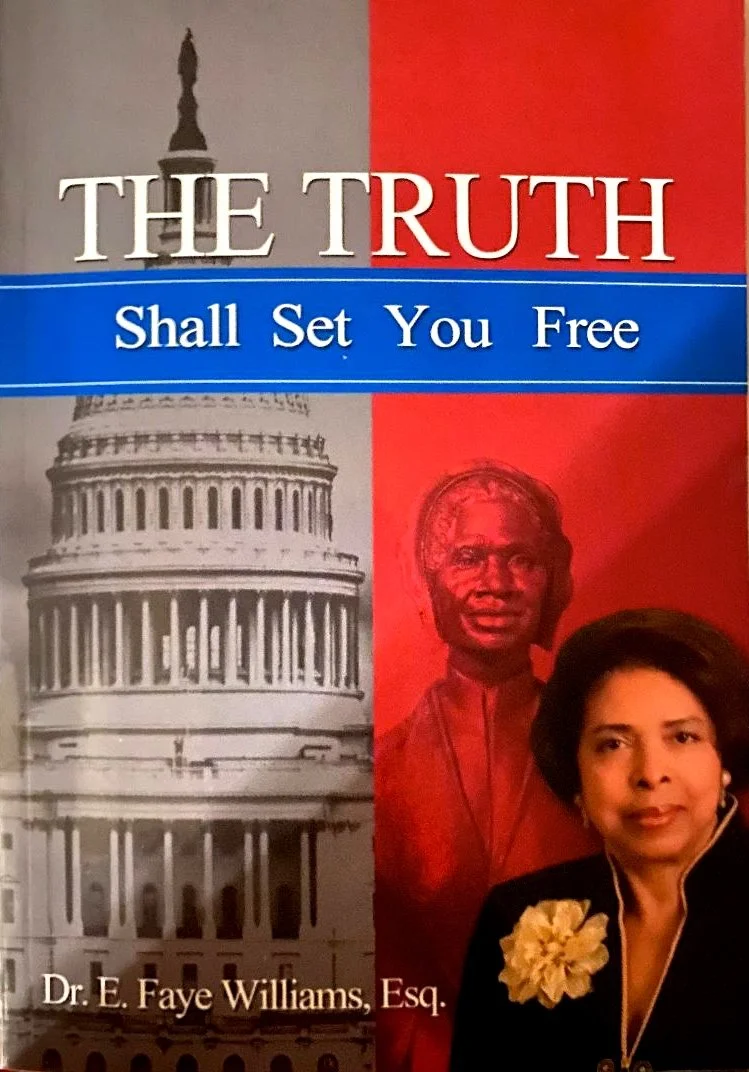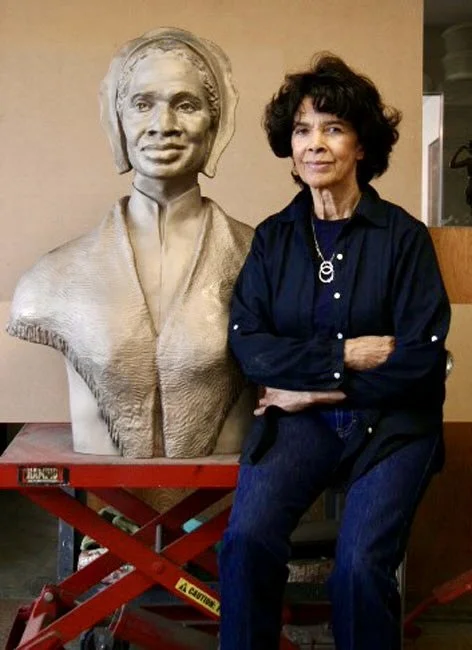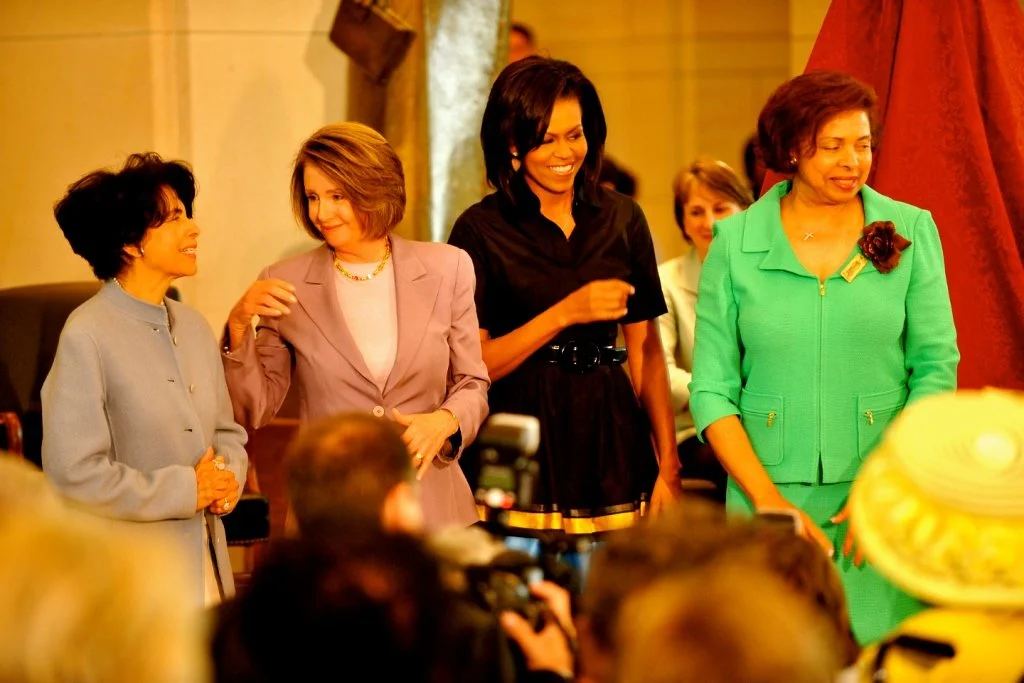Since I was a little girl, I have loved writing. I always received high marks for my writing in school. I loved spelling and English, and of course, as a young girl I kept a diary and hoped no one would ever read it, but if they did, they would know I was a good writer! I was always excited when I was asked to be the notetaker in meetings because I could learn to spell better and write faster!
As an adult, I became an English teacher and had to teach young people how to write and express ideas so anyone could understand what they had written. I read a lot and want people to understand my point when I summarize what I have read. I was taught to both write and speak so "my grandmother" could understand what I wrote or what I said. I was taught the whole purpose of writing and speaking was so that others can understand what you mean. That helps me when writing and speaking for all kinds of people.
I never want people to have to go to the dictionary to figure out what I want to say if there is a more common way to say it. I love writing and I feel at greater peace when I can put my ideas on paper and share them with others before I forget them! I write books and I write a column for newspapers every week, and I don't see that as a chore. I see all of my writing as a pleasure and a blessing to express my thoughts freely and hope that someone will read what I write and find something in what I say to be helpful to them.
.I am a country girl! I was born on a farm in a little town called Melrose, Louisiana to Vernon and Frances LaCour-Williams on December 20, 1941.
I have an older sister, Bernice, who preceded me by two years. Five other sisters --Rose Marie, Siverene, Erna Ruth, Gussie and Mildred came after Bern and me--. Two brothers joined the girls-- one after Gussie, the other one after Mildred. They were Vernon, Jr.--known as Sonny and last came Stevie.
While my dad was Black, my mother was French white and Native American. My Dad’s father was Black and his mother was Native American and white. Despite all that mixture, Mother always said she was Black. We couldn't figure that out, but it didn't matter. She was just Mother to us. My Dad was ten years older than my mother, and I am told that when he was a young man he would pass by Mother’s home while she played inside the fence where she lived, and he would tell everybody he was going to marry that little girl when she grew up. He finally did that, and I was their first child. By the time they got married, Mother had a brief marriage and Bern was born.
Although one of my uncles told me there is no way I could remember things from the time I was only three years old, I am convinced I do remember things--several as a matter of fact. I specifically remember our living in a little house by a highway. We had cousins on the other side of the road. I clearly remember my 5- and 1/2-year-old sister, Bern, taking my hand to get me safely across the highway so that we could walk down to visit our cousins (Lee, Gleamris, Bill and Yvonne) who lived near the Cane River that ran by our house and theirs. I now know it was about one quarter of a mile from our home because I saw the place when I was older. Bill was my favorite cousin. I guess it was because we were born so close together. He and I were born just two weeks apart and we were inseparable. He was born on the actual day of the attack on Pearl Harbor. I was born two weeks later because I guess even in my mother’s womb, I knew war was not a good thing, and I didn't want to come into this world the day of the attack on Pearl Harbor.
FRANCES/ FRANCIS
“THE TWO FRANCES / FRANCIS ANIMATION SERIES”
I have a little great-great-nephew whose name is Francis. His father loved my mother whose name is Frances so much that he named his first son for his great-great-grandmother Frances. Since little Francis, as we call him, was just a few months old, he fell in love with his great-great-grandmother Frances.
It seems that he thought his great-great-grandmother was a playmate for him. He would take her walking stick and run away with it. Others had to go and find it and bring it back. He would do it again and sometimes bring it back. As he grew a little, he would climb upon her bed and hug and kiss her. When she made her transition and was moved from his site, he could not understand where she was because she had always been in her room when he wanted to play with her.
After not seeing her for so long, he learned to talk and asked where she was. He was told she'd gone to heaven. He then began asking when she would be back and the adults had to begin coming up with logical responses for him because they knew he did not understand the concept of heaven. As he learned to talk more, he began asking questions like, "Is it raining where she is, and is she getting wet?" He began saying he wanted to go where she was, and that was a tough one, but he was told he could go someday, but he had to wait for his time.
Little Francis is now in Pre-K and he still asking questions. He’s still given age-appropriate answers.
“MY FRIEND: MS CICELY TYSON”
Maya Angelou once said, “Let gratitude be the pillow upon which you kneel to say your nightly prayer.” I have much for which to be grateful. I have been blessed to have some of the most wonderful friends in my lifetime. I am grateful for all of them; but there is one who stands out--a long way out! Dick Gregory for whom I am also grateful to have known much of my life, formally introduced me to Cicely Tyson--and what a blessing that was! Once we met, everything seemed to click. We had so much in common and we always enjoyed our time together.
Cicely would often walk into my place after a long train ride from New York to Washington, DC. Someone would call ahead of her arrival and have a brother by the name of Tyrone to meet her at the train to take care of her luggage; she’d call the same person when she was ready to return. She would just walk into the house, sit down and go to sleep. Sometimes she would sleep for hours before we even had a chance to chat.
Either Troy or I would pick her up. Two weeks before she made her transition, she spent a couple of weeks with me. We always enjoyed her visits. In one case, she spent two weeks and we laughed so much. She never laughed when she spoke of her former husband, Miles Davis, but she never said a mean thing about him—negative things—definitely, but never mean. I believe she always thought that along with his negative behavior, he had redeeming qualities. Maybe it was just his musical talent. Most of us women are usually good at finding the good in somebody and praising that good quality and allowing it to overshadow all the negative stuff.
We didn’t talk a lot about Miles, but I knew enough about the way he treated Cicely--so when I heard someone say she wanted to be buried in Westchester, New York where Miles was already buried, I found that unbelievable! This was personal for me since I was a survivor of domestic violence and I know what such an indignity feels like. I hoped it wouldn’t be true--but it was. I think I would have wanted to be as far away as possible from him--even in death! As the song goes “Love is Strange!” or if she had to explain it, she might have answered “What’s Love Got to Do With It?” She was a person who really wanted to help Miles become a better person than he had chosen to be.
When she came and spent two weeks with me, she had been informed that an article would be coming out about her on the cover of Time Magazine. Her magazines were, therefore, sent to my home. It seems like we were little kids waiting for Christmas to come. She was so excited, and her excitement rubbed off on us!
TERRORIZED PEACE / BOOK AND FILM
Terrorized Peace”, an amazing, heroic story of 200 courageous women from around the world, who were held at gunpoint in the daunting waters of the Persian Gulf and the Arabian Sea.
A humanitarian, two week mission for peace was dramatically hurled into the most unbelievable nightmare.
For 19 days, under brutal armed-guard by rampant and merciless United Nations soldiers, the women were subjected to the most terrifying and horrific experience of their entire lives.
It’s December 1990, weeks before President George H W Bush’s “dare date” of 15th January 1991 when he threatened to unleash one of the most intensive air bombardments in military history - codename: “Operation Desert Storm”.
Iraq was on the brink of an all-out military attack by the United States and an allied force of 35 nations - the largest alliance since WWII.
A group of female delegates from various different countries, known as “Peace Messengers” were in a race against time aboard an old Iraqi School vessel, they called the “Ship of Peace”.
The delegates’ mission; to promote peace in the looming threat of the Gulf war and deliver a huge cargo of food, milk, sugar, medicine and letters to women and children in Iraq.
This saga will highlight the journey and epic adventure of 200 women, trapped in the most harrowing situation on the unchartered waters of the Persian Gulf and Arabian Sea.
It was Monday 3rd December 1990 when a call was received from the office of Dr. Mohamed Al-Mashat, the Iraqi Ambassador to the United States.
Mrs. Manal Younis, the President of the General Federation of Iraqi Women and the General Arab Women’s Federation, invited a group of International delegates from the United States, Japan, Italy, Spain, Sweden, and ten Arab countries.
It’s 8th December 1990, the “Ship of Peace”, cast off from Tunis at around 5pm, carrying nearly 300 passengers (200 delegates, 15 husbands, 10 children , 40 Iraqi crew members and 30 journalists) towards their scheduled ports of call: Tripoli (Libya), Port Sai (Egypt), Sudan, Al Houdayda (Yemen), Aden (Yemen) and Basra (Iraq).
At each port, the delegates were to hold a peace rally and women from that city would donate their country’s gifts to the cargo destined for Iraq.
The following morning, the women welcomed the announcement of some very positive news; Saddam Hussein had declared that by Christmas, all foreigners detained in Iraq would be released.
The “Peace Messengers” relaxed into their voyage with hopes, prayers and expectation that it would be smooth sailing all the way.
However, the “Ship of Peace” was destined for tumultuous waters, and a devastating turn of events that none of them could have ever imagined.
THE STORY CONTINUES. . . . . . . . . .. . . ….. . . . . .
Many could only pray that the friends each had made on the “Ship of Peace” would make it out alive.
It was midnight of 16th January 1991; America had declared war on Iraq. Operation Desert Storm was underway....
The Gulf War began with an extensive aerial bombing campaign in which the coalition flew over 100,000 sorties, dropping 88,500 tons of bombs.
For 42 days allied forces unleashed a barbaric assault in which over 50,000 lives were lost,
The onslaught left over 90,000 people injured and billions of dollars worth of military infrastructure and machinery on both sides destroyed.
It is known today that the “Ship of Peace” was one of the first targets to be hit in the opening airstrike in Basra.
THE AUTHOR…. DR E. FAYE WILLIAMS, ESQ.
The start.. . . ..
The book consists of more than 12 years of my humble thoughts. Nearly all are from my weekly articles written at the request of Hazel Trice Edney, President and CEO of Trice Edney Wire Service.
My first article for the Trice Edney Wire Service began January 2011. Articles prior to that time are from my general commentary on various subjects leading up to that time.
When Hazel invited me to write a weekly article for her wire service, I was very proud of her for starting a wire service that would give Black writers like me an opportunity to be heard on any subject of our choice.
I love writing and it seems that my brain goes ballistic on almost every subject - especially when the subject has an impact. on black race (people of colour) - and what doesn’t these days?
Since Barack Obama was the President of the United States, and Michelle Obama was our beautiful and brilliant First Lady, I must admit that I watch the news more carefully than ever before - ready to use my computer keys to pounce on anyone who even think of disrespecting the former First Lady or President Barack Obama!
In order to keep my sanity about some of the garbage dispensed, I write. One might call it my therapy. Some people yell and scream; I write, at least until I figure out what to do!
I am always delighted when people respond to my writings to tell me I hit the nail on the head in my message or I said exactly what they were thinking.
When I work with young people, I encourage them to write.
As a member of the Presidential Scholars Commission, I am blessed to have an opportunity to read some of the most creative, often heart-wrenching words written by young people.
I know how their writing affects me, and I pray that my writings will be an inspiration or motivation to others to record their thoughts and take action to resolve challenges whenever and wherever they can.
(Dr E.Faye Williams, thoughts during the Presidency of Obama....)
First highlighted:
Heard It Through The Grapevine
February 11, 2011
Black press and publications have done better at talking about Black history than any other publications. Our community depends upon Black press and publications almost exclusively to talk about the great things Black people have done against great odds.
An African proverb tells us, “Until the lions tell their story, tales of hunting will always glorify the hunter.” That is why it is still necessary to have special celebrations of Black history. Wherever I speak in Black History Month, I see mostly Black people, when others really need to hear our history.
Black History Month is the shortest month of the year so we have to squeeze a lot in to come close to doing any measure of justice to our story!
As a child of the Civil Rights Movement, I’ve learned a few things about our history - and still find little known facts about who we really are.
Many of our people have achieved highly without anger and without bitterness because of our faith. We have first-hand experience with what hate and bigotry can do to the human spirit.
Our early artists and musicians could not aspire to attend college or performance schools; so our art and music grew out of our struggles.
No sermon in Black churches begins without foot-stomping, hand-clapping and soul stirring music. Indeed, some people attend certain churches because of the great music.
Many of our greatest entertainers came out of the Black church where they learned music. Many were in the forefront of the Civil Rights Movement sharing their talent and their resources.
The Black church was in the forefront of the Civil Rights Movement, and was able to bring many top artists into the Movement to perform. Geniuses emerged: Lena Horne, Mahalia Jackson, Dick Gregory, Harry Belafonte and many others. Our civil and human rights workers sang. Singing made them more determined.
When Black people were in slavery and other harsh conditions, you’ll find songs of the struggle, songs of determination. They didn’t learn to sing in the great music halls but they produced, “Soon I
Will Be Done with the Troubles of the World,” All of God’s Children Got Shoes,” “Swing Low Sweet Chariot,” “Before I’d Be A Slave, I’d be Buried in my Grave,” “Steal Away” and others. They sang as signals to one another. They sang out of anguish to soothe their pain.
Through the horrors of slavery, no one could keep Black people from going to church. On Sunday morning, something came over our ancestors and they had to go. They sang up a storm and performed songs that have survived to this day. Slave masters were often misled into thinking our ancestors were singing because they were happy when they were plotting their next move!
Many Black colleges still have soul-stirring gospel choirs. The Fisk Jubilee Singers sing all over the world. They sing the old spirituals our ancestors sang. Howard University has a gospel choir; you can hear them any Sunday at the Howard University 11 o’clock church service.
Much of what our families learned about the world were things musicians and artists who traveled to small towns told them.
When artists and musicians came through our towns, they couldn’t stay in hotels; they stayed in Black homes, so they shared what they learned with our communities. Attempts to keep knowledge from us did not succeed.
As Gladys Knight and Marvin Gaye said in their songs, “We heard it through the grapevine” - our Black press, porters, artists and musicians were that grapevine. What a blessing that grapevine was because it means great musical and artistic talents survived - and we are better off for it.
The subjects in my book run the gamut. With the astronomical number of attempts to push back on any progress President Barack Obama attempts to bring about, and the astounding number of efforts to take our country back to a horrendous past when we had no rights, I am prevented from saying nothing. I try to tell the truth as I see it because even though the truth often hurts, I do believe, THE TRUTH SHALL SET US FREE!
SOJOURNER’S JOURNEY TO THE CAPITOL- WASHINGTON, D.C.
Sojourner Truth was a powerful woman who had no problem with walking for the causes in which she believed. The two causes pointed out in this writing are freedom for African Americans and equal rights for women. She walked all the way from Battle Creek, Michigan where she lived for a while to Washington, DC into the White House to talk with President Abraham Lincoln about these two causes important to her. Not knowing one could not just walk into the White House without an appointment, she began talking with friends who could make it happen. When she finally got in she observed seeing the President talking with many people, including Black people and observed him to be kind to all of them.
Once she had a chance to speak directly with Mr. Lincoln, she told him that before he became President, she'd never heard of him; but by this time, she liked the things he was doing while asking him to do more. He found her statement about never having heard of him funny but admitted he definitely had heard of her and her abolitionist work. That pleased her because she had come to discuss the very subject of freedom for Black people. The other subject was women's rights. She succeeded in discussing both subjects. Once leaving the White House, she became in the eyes of many a champion for abolition for Black people and a champion for women's rights. For both reasons, as President of the National Congress of Black Women, we honored her with a memorial bust of her in the United States Capitol!
When I heard about Felecia’s story I immediately wanted to know more about her ailment; one I never knew about until I began talking with Felecia. It's called arthrogryposis. We’ll learn more about her disability later, but upon first hearing about it, I wanted to do something for her to make her happy.
After reading Felecia’s story, I pray that what I have written, with her guidance, will help you understand how her life was sadly different from so many of ours. Yes, we have struggles, but not to the degree that Felecia has every day of her life. She wants to get further education, and I pray that you will honor her by getting all the education you can, so that one day you might be able to help someone.
Felecia, about whom I am writing, has lived to be 45, and I think she has a lot more years ahead of her. She is so enthusiastic about life that she has made a long list of her goals. Getting this book about her life published is one of them. She hasn’t been as fortunate as my nieces; yet, she has friends determined to help her live the best life possible. It is one of my prayers that she will experience happiness just knowing how many people care about her. Despite her challenges, if Felecia can still encourage her readers she still has a lot of living she wants to do.
I have committed to bringing the story of Felecia and her life’s challenges to you. One of her dreams is to get more education so that she can help someone else. I refuse to allow Felecia to give up on her dreams.
So many people have far fewer challenges in life but allow themselves to give up when something happens that gets in their way. Sometimes they skip school, drop out of school before graduation, and refuse to do their homework or pay attention in their classes. I write this portion of Felecia’s book, in hope that there is someone with far fewer challenges who will want to get all the education they can.
Though she is now an adult, Felecia has special needs to be considered. All who support education must pay more attention to the physical and mental health of our people with disabilities. They too, suffered during COVID. They need special programs.
Had her disability received more attention as a child, some of Felecia’s current challenges might have been avoided. We owe it to the least of our children to give them the best life possible.
1 Peter 5:2-4 tells us to “shepherd the flock of God that is among you, exercising oversight, not under compulsion, but willingly, as God would have you; not for shameful gain, but eagerly not domineering over those in your charge, but being examples to the flock. And when the Chief Shepherd appears, you will receive the unfading crown of glory.”
2 Chronicles 12:14 reminds us of our duty to children. “for children are not obligated to save up for their parents, but parents for their children.”
Many of us can step up to the plate, to make life better for some of our children, but don’t. Felecia’s story is a call to do all that you can, and that is what Felecia’s story reminds us to do.
At a certain point in Felecia’s life, she was blessed to meet Robert “Bobby” “Zorro” Hunter, who led me to Felecia. Bobby serves with me on the Board of Directors of the “World Conference of Mayors”, as well as the project, “Take Back Our Children.” Furthermore, we work together with the “Federation of World Peace and Love”.
He’s known as an Ambassador of Peace and Goodwill. I have credentials as a United Nations Peace Ambassador with an obligation to help bring about peace wherever I am. Bobby and I have similar responsibilities and we work well together. Bobby is also a former member of the Harlem Globetrotters and an active member of the work they do in retirement. They bring a lot of goodwill and joy to many around the world - so wanting to help Felecia reach one of her goals is natural for him. Therefore, we began putting her story on paper.
coming soon SPRING 2024



















